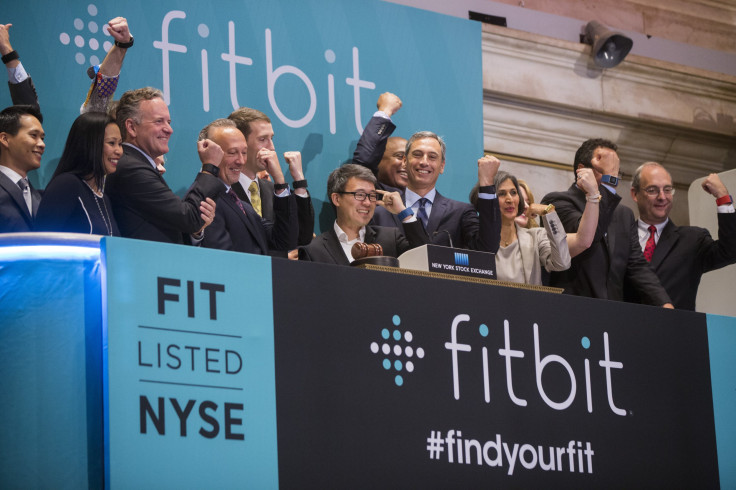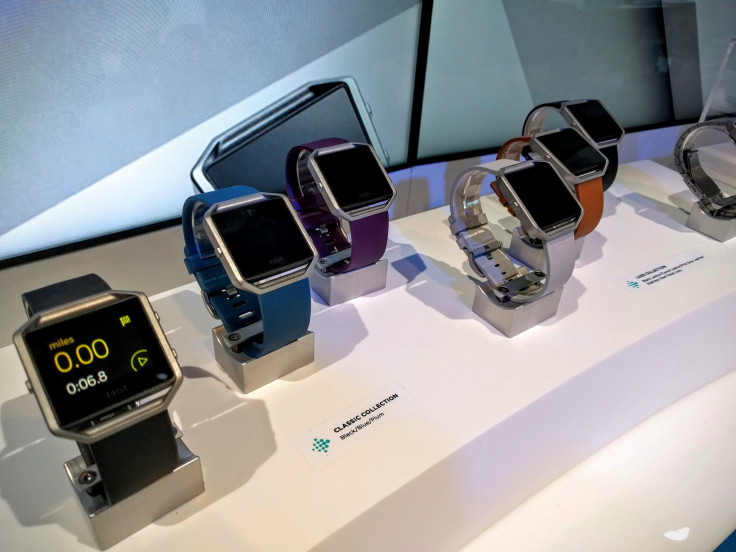Fitbit: Wall Street Doesn't Understand The Wearables Market Like We Do

LAS VEGAS — For private tech companies, the launch of a major new product is typically followed by celebrations and basking in the glory of a job well done. For public tech companies there is no time to reflect as Wall Street will tell you instantly what it thinks of your new gadget. On Tuesday, newly public Fitbit found that out the hard way.
Following the launch of the company's Blaze fitness tracker, the company's share price took a hammering. In the hours before the company's first news conference at the highly influential Consumer Electronics Show here Tuesday morning, the company's shares were trading around the $30 mark. At close Tuesday those same shares were worth $24.27 and they have continued to fall since, closing Wednesday at just $22.93, a drop of over 25 percent -- though still higher than its initial public offering price of $20.
The Blaze is not a smartwatch, according to the company, despite looking like one. It is a dedicated fitness tracker designed to meet the needs of Fitbit's customers and be "more motivating, smarter and more stylish than ever before."
We Understand the Market
The exact reason for the huge plunge is unclear, but for Fitbit's Gareth Jones, who heads the company's Europe, Middle East and Africa operations, one of the reasons is that very few people — including those on Wall Street -- understand the nascent wearable market like Fitbit does. "Today there are still very few people who can really say, I know this [market] so well I can predict what is right, what is wrong. I would say, as the market leaders, with our track record, [we do]," Jones told International Business Times.

Jones points out that no one would have predicted the startup that attended CES four years ago would have turned into the $5 billion company you see today. "We look at [the products] and tend to say that we have a focus and an understanding of our markets," Jones said. "We have confidence in what we have done before and how we see the total proposition, we think that Blaze is going to be a very important product for us. "
Jones says the company remains "100 percent confident about Blaze" and that with its $199 price tag and features -- including 24-hour heart-rate monitoring -- it can become a market leader in its segment. That segment, however, does not include smartwatches, Jones clarifies, as Fitbit sees itself as a company dedicated to "help you achieve your fitness goal."
Competition
While Fitbit does not see smartwatches in the same category as its range of trackers, most others do. Market research firm IDC includes Fitbit devices alongside the likes of the Apple Watch and Android Wear smartwatches in its quarterly wearables report and in the first quarter Apple Watch was on sale it grabbed a significant 19.9 percent market share. In IDC's latest figures Fitibit remains the market leader with 22.2 percent, while Chinese company Xiaomi shot into third place with market share of more than 17 percent, thanks to its $14 fitness tracker going on sale in Europe and the U.S.
With increased competition it is clear that Fitbit is going to come under increasing pressure from shareholders -- and if profits begin to slip, those shareholders will naturally ask if the company is leveraging all of its assets to increase revenue. One of Fitbit's key assets is the huge volume of highly personal data it gathers on its nearly 10 million active users.
Sacrosanct
Selling that data, however, is simply not an option: "Categorically I can say no. Our users data is sacrosanct. There private data will never be used. It's a trust issue."
Another potential revenue stream would be opening up the data from Fitbit hardware to third-party applications. While Fitbit data can currently be shared with other apps, the company has no plans to let outside apps work on its products. "We have not yet considered an ecosystem where people have apps that work on our products," Jones says, adding that the reason is that customers have simply no desire for such an ecosystem.
Jones says that profitability is not what will drive the company to consider options about using the data or opening up its platform, but any more dips in share price, as seen Tuesday, and that position may be reassessed.
© Copyright IBTimes 2024. All rights reserved.






















